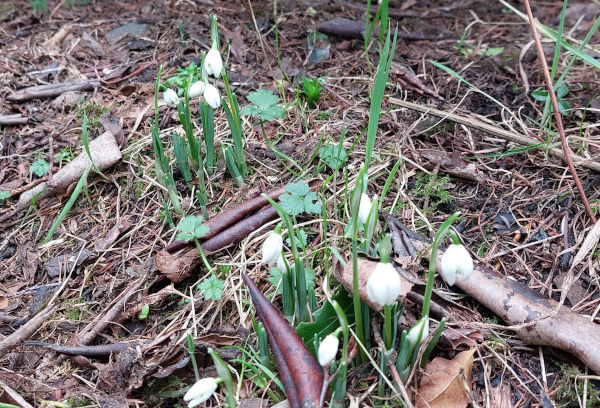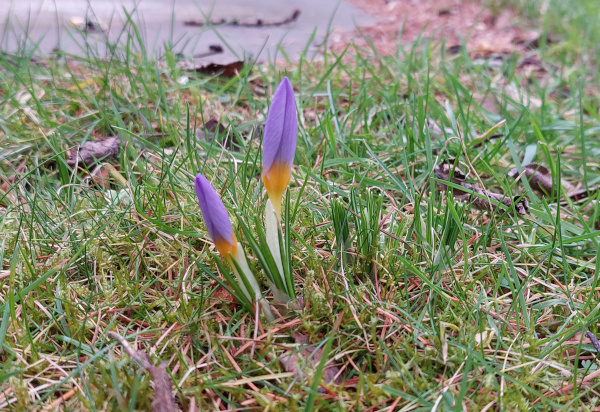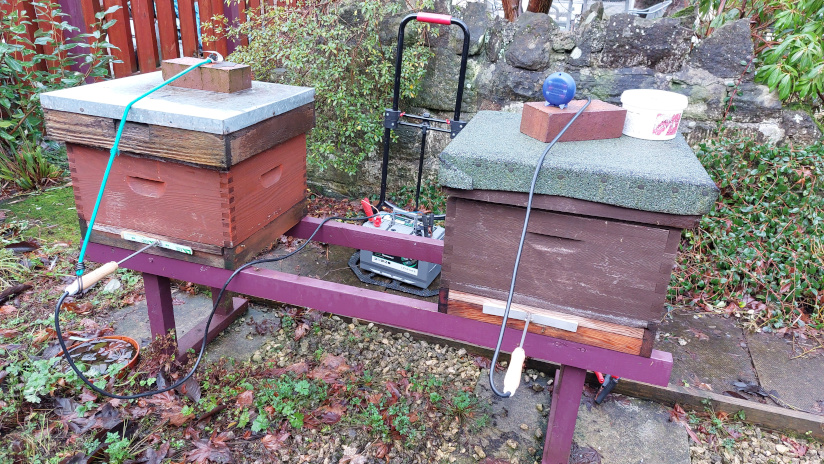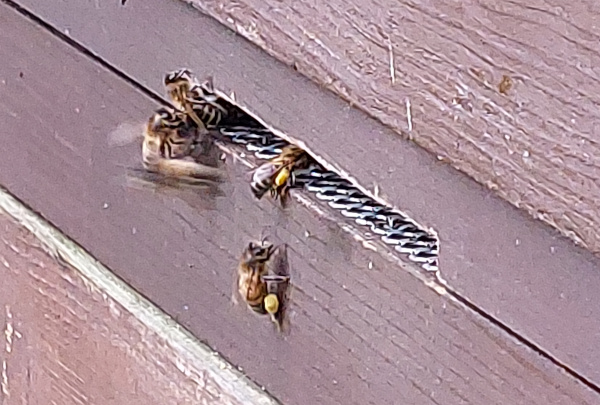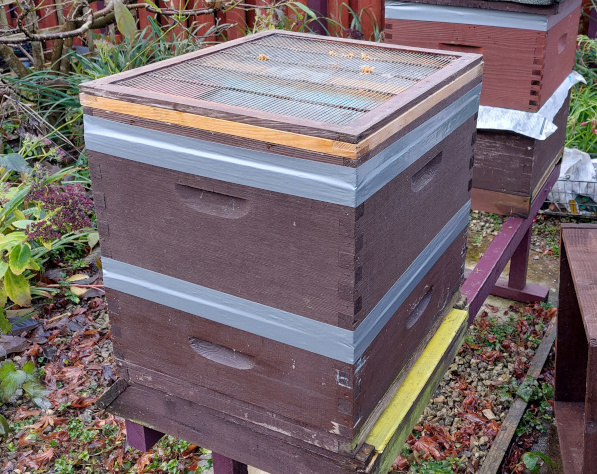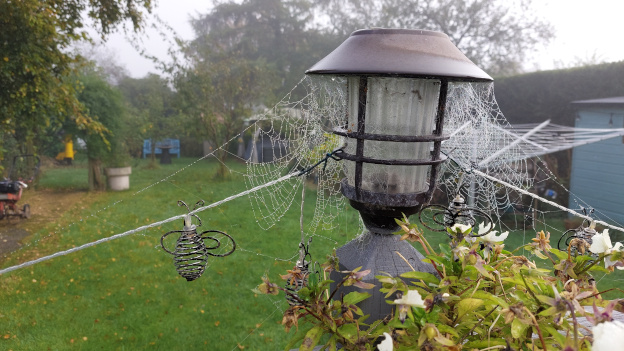17th January - A gloriously calm sunny day, bracing at minus 2C.
It's been 14 days since their first OA treatment. Checking the varroa boards the day after the first treatment revealed very few mites. It was time to carry out the second Oxalic Acid Sublimations and topping up/replacing any low feeders.
Following the last couple of days sub zero temperatures the bees were nicely down in the hives. Going about the process quietly and gently avoids having the bees trying to pour out while the wand is inserted. Once the power is applied and the OA fog billows through the hive they become agitated enough, and can be heard roaring inside. A silent hive at this point is an indication that all may not be well. In the event 2 were silent, and on removing the roofs once the wand had been removed and the colony allowed to settle it was evident that the strong colonies have remained strong but that 2 weaker colonies had died out. Both were dismantled and inspected for cause on site.
The first, in a garden apiary, was not an unexpected loss, having observed fresh drones at the previous visit, which is not a good sign at this time of the year. Inspection revealed very few bees left, perhaps as few as 4 or 5 hundred, as many that would fill your cupped hands. Many of the dead bees were drones. What evidence there was of brood production were just a few scattered drone cells either sealed or emerging.
The second was in an out apiary, records show that it had struggled through the season, been re-queened twice eventually becoming queen-right, but had never managed to reach full strength despite our efforts. There were very few bees left, as little as 3 or 4 hundred, and no evidence of any brood at all.
Both colonies were queen-right and had sufficient bees and stores when configured for winter and should have been able to survive and continue brood production through to spring. With so few bees left and no evidence of brood production, queen failure seems the most likely cause. This would not be a surprise considering the weather conditions during the season when the virgin queens should have been out mating. The rate of failure, more than 60%, of the splits and nucs created around the same time would support this theory.
Fingers crossed the colonies left are strong and will remain so!

